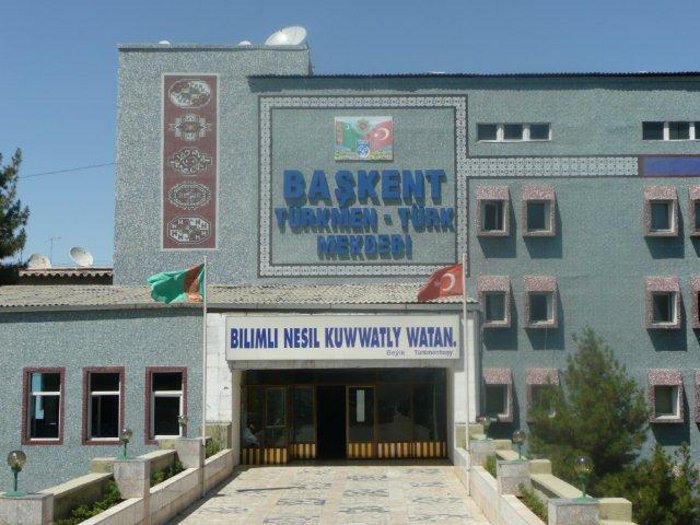
The Nursi Movement in the Former Soviet Union: Islamic Radicals or Agents of Turkish Influence?
Publication: Eurasia Daily Monitor Volume: 10 Issue: 45
By:

According to Maria Kravchenko, a member of the Russian human rights center “Sova,” Russian authorities continue to persecute the followers of Said Nursi, a Turkish theologian who died in 1960. Kravchenko notes that Nursi’s followers are often sentenced to 1.5 years in prison (Kavkaz-uzel.ru, November 1, 2012). Yet, Bayram Balci, a visiting scholar at the Carnegie Center for International Peace, argues that those individuals actually belong to two distinct movements (often confused as they are historically and ideologically close): namely followers of Said Nursi, commonly called the “Nourdjou,” and followers of Fethullah Gulen, commonly referred to as the “Fethullahci.” Both movements are active not only in Russia but also elsewhere in the former Soviet space—especially in Central Asia and Azerbaijan (Ferghananews.com, January 22).
Said Nursi was born in 1876 in Turkey. He belongs the Naqshbandi spiritual order of Sufi Islam. When the Turkish Republic was founded after the collapse of the Ottoman Empire, he worked to ensure that the new country’s institutions would be respectful of Islam. In particular, he advocated an Islamic-inspired Constitution for the new state. But, due to a strong disagreement with Mustafa Kemal Ataturk and his secular vision, Nursi renounced political engagement and created an apolitical and pietistic mystical movement aimed at strengthening the people’s faith and religion. He developed circles of readers of his fundamental work, the Risale i Nur. Following his death, Nursi left behind an active movement in the country that was subsequently divided into several groups. Each group was headed by one of his close disciples, dedicated to disseminating the Risale i Nur, promoting his ideas in academic circles, or to education (Ferghananews.com, January 22).
Fethullah Gulen was one of these direct disciples and the only one to focus on education. He currently lives in self-imposed exile in Pennsylvania, in the United States. Like Nursi, Gulen is concerned with the education of Muslims, and their integration into the modern world. Starting in January 1980, Turkey transitioned to a true market economy, allowing all religious movements, including the Fethullahci, to freely pursue their religious, economic and educational projects. Thus, the Fethullahci movement grew all over Turkey (Ferghananews.com, January 22).
Interestingly, the Naqshbandi order itself (as pointed out above, the Nourdjou and Fethullahci belong to this Sufi Muslim spiritual order) was conceived in Central Asia. Baha-ud-Din Naqshband Bukhari (1318–1389), the founder of the Naqshbandi order, was born in Bukhara, located in modern-day Uzbekistan. From its origins in Bukhara, the Sufi Naqshbandi order has followers in all Muslim countries. During the 19th century wars in the North Caucasus against Russian forces and the Russian colonization of Central Asia, it was members of the Naqshbandi order, not states, local feudal lords or their armies, who led the resistance. In 1940–1942, an uprising against Soviet authorities was also led by the Naqshbandi order (Forum-18, May 13, 2004).
After the collapse of the Soviet Union, the Nourdjou and Fethullahci started to spread their influence in the Muslim regions of Russia, Azerbaijan and in Central Asia. But the activities of the Nourdjou and the Fethullahci are quite different. The Nourdjou followers are very committed to the dissemination of Said Nursi’s Risale i Nur and lead reading circles to share his theological lessons. Their numbers remain small, however, and they have a limited impact on the Muslim populations in the former Soviet Union. Without specific facilities like schools or madrasas, they conduct their religious activities in private apartments. The Fethullahci, on the other hand, have grown significantly. Between 1992 and 2000, nearly a hundred institutions connected to this movement were established and developed throughout Central Asia, Azerbaijan and Russia (Ferghananews.com, January 22).
Initially, Central Asian and Russian authorities did not interfere in the activities of the Nursi followers. This approach was likely driven by the Russian and Central Asian authorities’ fear of the specter of Islamic fundamentalism, which calls for Islam to be cleansed of regional customs and to return to what fundamentalists see as the original Islam of the time of the Prophet Mohammed. Whereas Sufism, with which regional customs are closely entwined, is seen by local governments as a relatively effective alternative to fundamentalism.
Nevertheless, the hands-off approach was eventually reversed in several countries. In 2000, Fethullahci schools were forced to close across Uzbekistan and Russia. According to Vitaly Ponomarev, the head of the Central Asian division of the Russian human rights organization “Memorial,” Moscow launched a campaign against Said Nursi’s followers out of growing concern over their large concentrations in the North Caucasus and their possible links to regional separatist movements. Meanwhile, in Turkmenistan, the number of Turkish schools has also drastically decreased; President Gurbanguly Berdimuhamedov nationalized 11 of the 12 existing Fethullahci schools in his country. Visiting Carnegie scholar Balci believes that these closures were linked with the coming to power of the Justice and Development Party (AKP) in Ankara. “This conservative Islamic government was close to Fethullah Gulen until recently, and is perceived in the region as too Muslim according local standards,” the researcher said. In other countries—Kazakhstan, Kyrgyzstan, Tajikistan and Azerbaijan—Fethullahci schools continue to operate without any particular difficulties (Ferghananews.com, January 22; Kavkaz-uzel.ru, November 1, 2012).
Yet, according to Balci, regional authorities’ fears of Islamic radicalism are not the only reason behind the policy changes in Russia, Uzbekistan and Turkmenistan toward Said Nursi’s followers who reside and work in these countries. “This distrust concerning the Nursi followers is a sign of embarrassment and fear, since Turkey has been emerging as a regional power over the past ten years,” Balci argues. “In Russia, for example, where the movement was also well established, the sudden emergence of Turkey as a regional power has led to the closure of new Fethullah Gulen educational associations and the teachings of Said Nursi being made illegal. Tashkent is also reluctant, even hostile to ideas that come from Turkey, whether religious or not, and regardless of whether they come from the Turkish state or private organizations. Even Turkish soap operas—popular in Central Asia—were banned in Uzbekistan in 2012, though they contain no religious material,” Balci concludes (Ferghananews.com, January 22). Discrimination against the followers of Said Nursi across parts of the former Soviet space mirrors Turkey’s growing cultural influence across this region. But both will continue to face obstacles until these post-Soviet countries become more open politically.




